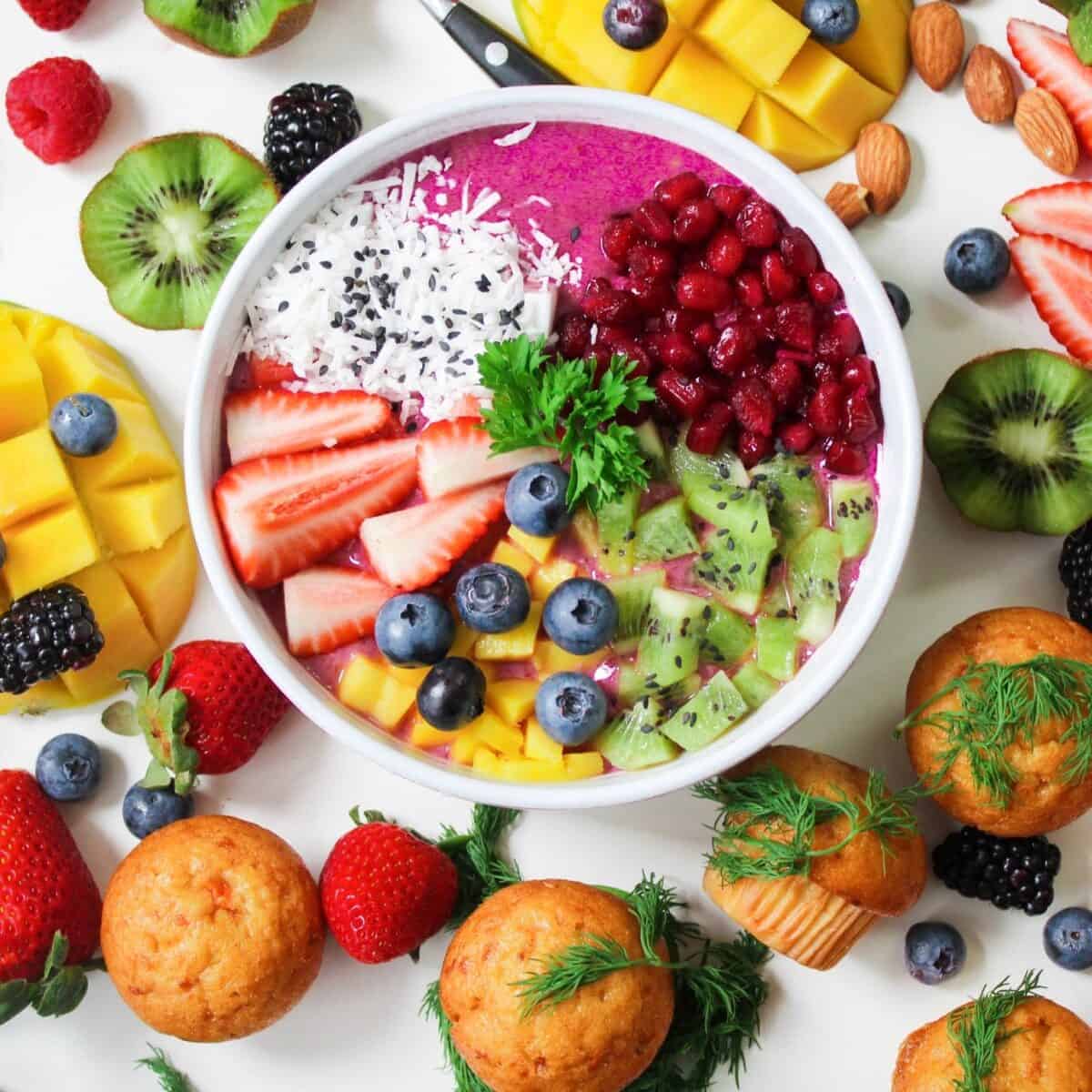
Can your diet really affect acne?
What is Acne?
Acne, otherwise known as acne vulgaris, is rated as the world’s eighth most prevalent disease given that it affects an estimated 9.4% of the global population. It is one of the top skin issues that patients ask clinicians to help them address. Acne occurs when glands in the skin produce and secrete an unbalanced about of the skin’s natural oil; sebum. In addition to excess sebum, dead skin cells can clog pores, resulting in acne problems. Acne can also be affected by your diet.
To really understand acne is to split it into two categories: noninflammatory and inflammatory types.
Noninflammatory acne
Clogged pores resulting in blackheads or whiteheads are indications of noninflammatory acne. Blackheads appear dark and flat on the skin, whereas whiteheads are small skin-coloured bumps.
Inflammatory acne
Anything that’s red, robust and persistent can be classified as inflammatory acne. This can range from papules and pustules to more severe nodules and cysts.
Papules are little red bumps, while pustules are little bumps that contain pus. Often enough papules turn into pustules. When acne becomes painful it’s usually due to the cysts and nodules. These inflamed bumps are usually larger than typical pimples and feel like they’re underneath the skin.
One of the most frequently asked questions we answer is can diet affect your acne? The answer, absolutely! Although there are many causes of breakouts your nutrition habits will play an important role.
Causes of breakouts: a diet perspective
Research from the Weston A Price Foundation explains that there’s more than meets the eye when it comes to diet and acne. Every bite that we take encodes a message to our body: a helpful and healing signal or a destructive and poisonous signal. Our skin is the reflection of what goes into our bodies. Therefore, the diet we eat can affect our acne; all the food we eat will contain molecules of minerals and vitamins that can either work for us or against us.
When the digestive system properly absorbs these nutrients they will help build (or break down) certain hormones. If our hormones are balanced then we won’t see acne problems or pimples on our faces. However, once we start seeing acne problems we need to check what foods we’ve been feeding ourselves and if our digestive system is even able to absorb the nutrients from these foods.
When food impacts our hormones for the worst, we will see changes in our skin, especially on our faces. This is our body talking to us, letting us know there’s an internal battle taking place but since the skin is the largest detoxifying organ, pimples on the face appear as a result of this battle. Studies show some foods definitely contribute to acne. We should avoid these foods.
Foods to avoid or eliminate
- Refined sugars (table sugar, high fructose corn syrup)
- Carbonated soft drinks
- Foods rich in omega 6 (vegetable oil, canola oil)
- Milk from cows that have been conventionally raised and fed.
- Refined carbohydrates (potato chips, pretzels, cakes, cookies, bread)
Foods to include
Although there isn’t a single bullet acne treatment, there are many things you can incorporate into your daily life that can cumulatively reduce your acne problems. Here are some dietary recommendations that would be beneficial to use on a daily basis.
- Include probiotic foods (sauerkraut, kimchi, yogurt, kefir)
- Aloe vera juice
- Stabilizing your blood sugar levels by having meals that contain good quality fats, carbohydrates and protein.
- Bone Broth
Making sure you have stress management tools, a regular sleep pattern and healthy relationships can also affect your hormonal health which will affect your skin, reducing pimples on your face.
Products to supplement your diet to reduce acne
If you have a healthy diet already or are in the process of changing it and would like some additional support from products used topically, we have just the perfect ones in the store.
This easy to use 2 step treatment process uses a medicated wash and an acne treatment solution to remove pimples on the face and provide a clearer more unified complexion. It’s a great addition to your daily routine to reduce your acne. It’s important to note that because this product contains alpha-hydroxy acid (AHA), it may increase your skin’s sensitivity to sunburn. Be sure to use sunscreen and limit sun exposure while using this product.
In the grand scheme of things, diet can play a big role in the development and agitation of acne problems but it’s not the only factor. Making sure you have a balanced lifestyle (including nutrition) and using the best products to support your skin type, will enable your skin to shine from the inside out.



